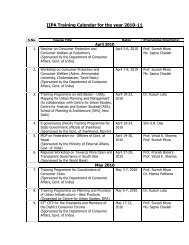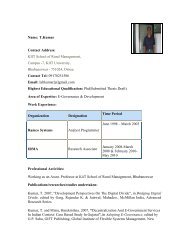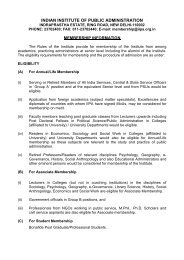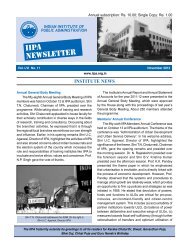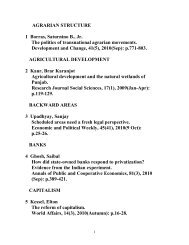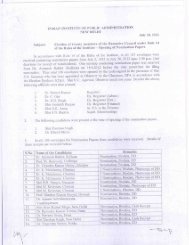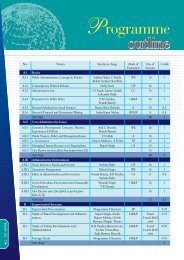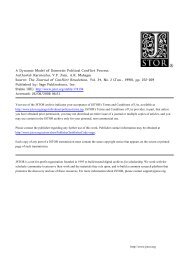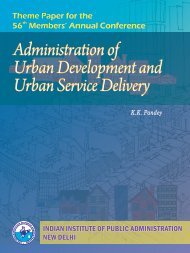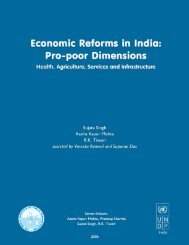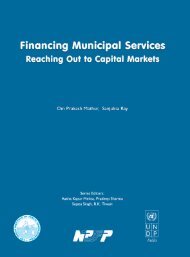Subcontracting and Economic - Indian Institute of Public Administration
Subcontracting and Economic - Indian Institute of Public Administration
Subcontracting and Economic - Indian Institute of Public Administration
Create successful ePaper yourself
Turn your PDF publications into a flip-book with our unique Google optimized e-Paper software.
<strong>Subcontracting</strong> And <strong>Economic</strong> Reforms In India With Special Reference To Agro-based Industries In India<br />
State Policy<br />
Sometimes different government policies encourage subcontracting<br />
relationships. In the case <strong>of</strong> the <strong>Indian</strong> economy,<br />
an outsourcing relationship can take full advantage <strong>of</strong> the<br />
dual state policies. There are two types <strong>of</strong> policies affecting<br />
the development <strong>of</strong> the farming-out relationship. One<br />
<strong>of</strong> them is the positive measure <strong>of</strong> promoting small-scale<br />
industries through product reservations, concessional credit<br />
for fixed <strong>and</strong> working capital <strong>and</strong> fiscal incentives. A large<br />
number <strong>of</strong> products are reserved exclusively for smallscale<br />
producers <strong>and</strong> large business units are not allowed to<br />
enter into those product lines. The small-scale sector is not<br />
subject to capacity licensing. Exemption from payment <strong>of</strong><br />
excise tax has been the most attractive fiscal incentive for<br />
small firms. The value <strong>of</strong> this incentive scheme is found to<br />
be very high, as rates <strong>of</strong> duty vary from 15 percent to 105<br />
percent.<br />
The second strategy is the protective measure to restrict the<br />
growth <strong>of</strong> large business units. The MRTP Act (Monopolies<br />
<strong>and</strong> Restrictive Trade Practices Act), <strong>and</strong> FERA (Foreign<br />
Exchange Regulation Act) put restrictions on the expansion<br />
<strong>of</strong> large firms. The second policy forces the large firms<br />
with frozen capacities to outsource additional output. The<br />
first policy facilitates outsourcing by creating a small-scale<br />
sector capable <strong>of</strong> producing numerous intermediate <strong>and</strong><br />
final products with simple technology. Small firms usually<br />
obtain the technology from their customer firms <strong>and</strong> equipment<br />
suppliers. So a subcontracting relationship gives them<br />
an opportunity to acquire technical skills <strong>and</strong> managerial capabilities<br />
(Ramaswamy, 1999).<br />
8




